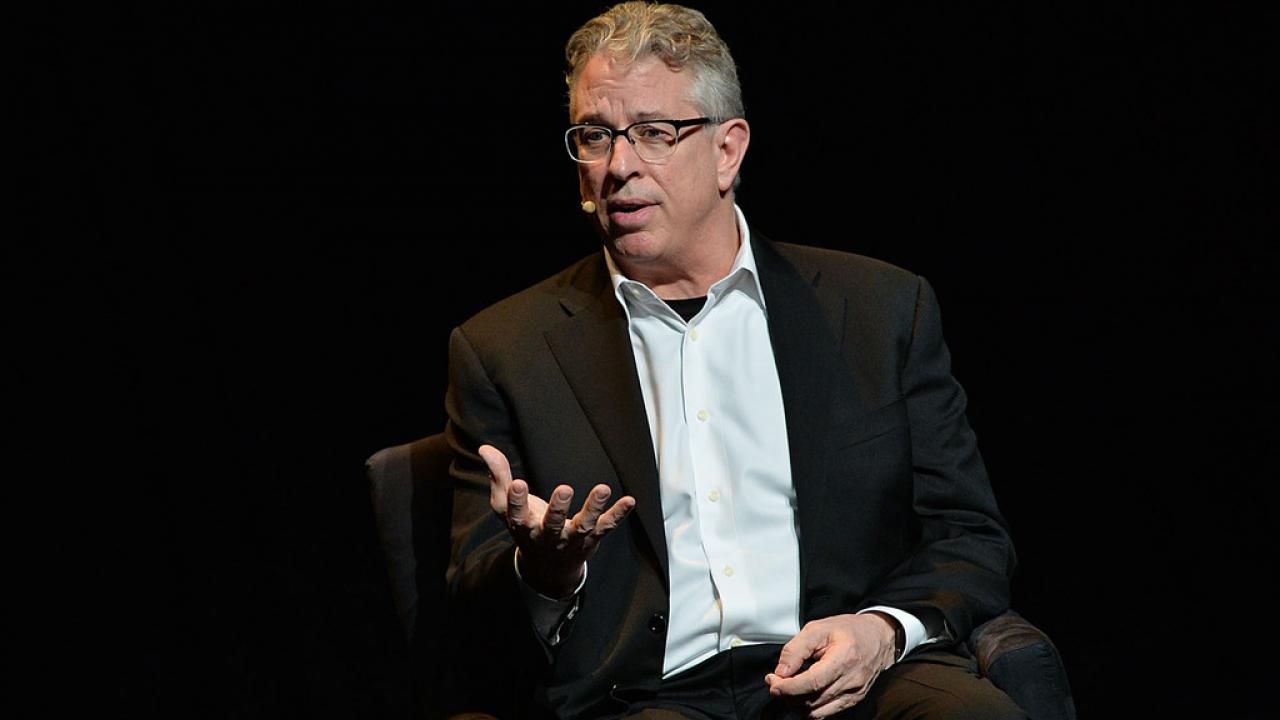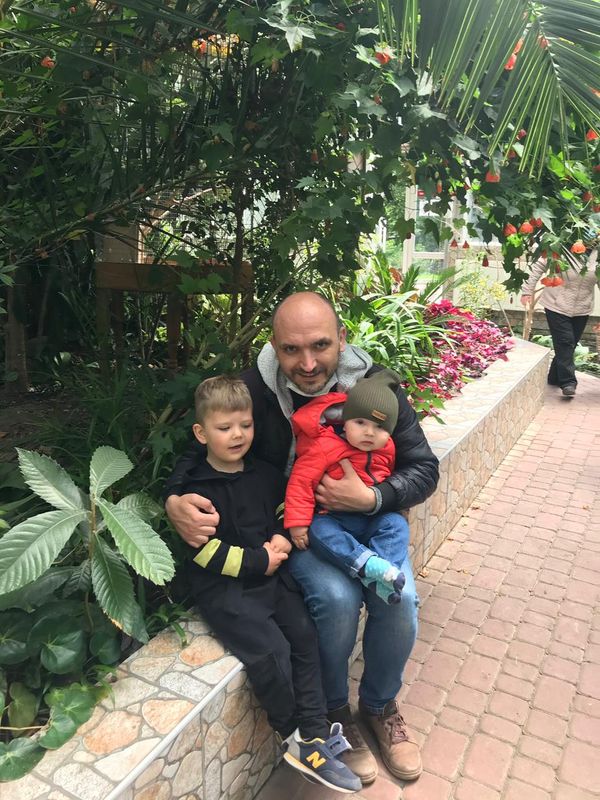Interview with Dr. Bruce Perry: What Happened to You?
Dr. Bruce Perry and Oprah Winfrey, through research and anecdotes, take us back to our first two months of life and beyond, to trace trauma from the root while sharing optimal ways to heal.
By Victoria Oldridge
Dr. Bruce Perry, of the recently published, What Happened to You? – co-authored with Oprah Winfrey – is a clinician in children’s mental health and neurosciences, who holds a variety of academic positions spanning 30 years of work and research on the impact of abuse, neglect, and trauma on the developing brain. Dr. Perry's work influences clinical practice, programs, and policy across the world.
Truffld: One of the takeaways that I gleaned from What Happened to You? is that when it comes to trauma, therapy has its place, but the core elements that have the most impact on one's recovery center around continual 'microdoses' of interconnectedness with loving people we can trust. That being said, does therapy have much of a place in the healing process?
Dr. Perry: I think that therapy can be incredibly important in the healing process, and I do therapeutic work, but what I try to help the therapists that I work with envision is to imagine they're the conductor of an orchestra – that they know all of the notes that should be played and when, but they're not doing it. The orchestra is the community out there: teachers, parents, coaches, siblings; all of the people who are in the life of the child that you're trying to help. But the therapist's role is to help the orchestra understand what they're doing – when to come in, when to go soft, when to go loud, and to create this harmonious therapeutic symphony. Being a therapist is a very important role but it's a significant shift [now] from the way a lot of people [traditionally] think about therapy, which is the child that goes to therapy once a week for an hour and then goes back to their world. Therapeutic things may happen during that hour but it's really an insufficient dose of regulation, of reward, of relational interaction that's important in healing from trauma.

Truffld: When most of us think about epigenetics, we talk about the impact of our lifestyle to turn genes 'on and off' which then influences the possibility of disease onset: diabetes, heart and lung disease, for example. In What Happened to You? we see epigenetics through the lens of transgenerational trauma, where our ancestors down to our great-grandparents, grandparents, and parents pass their trauma on to us at the genetic level. If we're aware enough and do the work necessary to improve this for ourselves, are we able to rewrite the script, so to speak, in one lifetime to benefit the next generation?
Dr. Perry: Every single cell in your body – bone, muscle, brain – has the same genes, but the genes that are turned on in every one of those cells is very different depending upon the history of that cell. During development, cells that get the 'signal' to become a bone cell, for example, they then produce all of the material to become bone cells. In a similar way, all of the neurons in your brain that comprise these important networks to allow you to think and feel and move, they have similar selective expression of genes that are important for their role in the system. So, if you have someone who's extremely stressed or feels threatened and their stress response system is activated in really prolonged ways that lead to these pattern changes [that we discuss in the book], there will be different genes that are turned on than if someone never experienced any of that adversity. If the stressful pattern persists long enough, that will be something that influences your egg [if you're a female] as well as the genes in the person's sperm, then when you have children, their body is going to start to get the signals to turn on this over-activated stress response system even though they're not encountering any extreme external stressors. So in that way, you can inherit some of the physiological adaptations that take place in a previous generation. The good news is that these mechanisms (activated or deactivated genes) are malleable to environmental signals, so if you have consistent, predictable, nurturing caregiving, and two generations ago there was all kinds of trauma and stress, you will begin to turn your epigenetic signaling back toward a more normal pattern in a single lifetime.
Part of the challenge though, is when people end up with these adaptations, they're misunderstood and interact with people that replicate the chaos and distress, so rather than getting external environmental signals to say, 'calm down, the world is safe', you basically reinforce the stressful situation that your brain thinks is out there, and it becomes a self-fulfilling prophecy.
Truffld: You explain the ways in which we can easily go into pre-cortical (primitive, less rational, lower order, cognitive processing) thinking quickly – which can lead to social missteps, misunderstandings, etc. What are some of the mechanisms we can implement to mitigate these occurrences, and go straight to the cortex a bit faster?
Dr. Perry: The interesting thing is that when your cortex is fully mature, it has these systems that feed back to those lower networks to quiet them down. If you put a hundred milliseconds between the impulse and your action, that's usually enough time to slow down that primitive reaction, and the top, rational part of your brain can come online and say, "That's your boss, don't say that!" [laughing].
If you're able to anticipate or be aware of times or interactions where you're likely to get 'tuned up' – like getting kids ready for school in the morning – it's pretty predictable that there's going to be a bit of escalation, so you might put in place a way to get up eight minutes earlier and do a bit of regulatory stuff for yourself. If you're calm, you'll have more access to your cortex, and [better able to] put a millisecond in between your impulse and an action.
Truffld: You cover quite a bit about children with anxiety, learning differences, challenges with focus, and that these behaviors – typically perceived to have an underlying genetic or other correlative origin – mimic the signs of trauma. How would the treatment method differ dependent on the root cause of the symptoms?
Dr. Perry: This is a big dilemma in our field. We need to figure out a way to understand everyone's neuropsychiatric presentation, and one of the things we think is important in that is what happened to you? What is your route to the present? If you have a child who comes from a background of chaos, who dealt with threat, trauma, abuse, and then they have attentional problems, it's pretty clear that the behavior isn't surprising. And then if you have another child in the classroom where their parents are invested, there aren't any exposures to violence in the home or community, but both kids are having the same attentional issues, it's highly likely that's a different mechanism, and so it's not surprising that one child will respond to one type of intervention while the other won't.
Truffld: As you've explained, the importance of relational connectedness and its profound impact across the continuum of our lives is one of the most critical pillars affecting mental health, and a lot of people these days aim to achieve this through social media which we know can be a useful tool as well as a detrimental one. It'll never replace the energy exchanged by people in a more direct, personal way – which is the way we're really designed to connect – what's your take on the role of social media in our day-to-day personal lives, and is it even possible to achieve through it, the relational connectedness that's integral to mental health?
Dr. Perry: That's a really good question. I have seen some really positive things happen with social media. There are times when people who are pretty physically and socially isolated who can have some positive connections that take place on social media, and then of course we've all seen negative things that can happen; you're highly vulnerable to trolls and bullying and all of that. Inevitably, as you alluded to earlier, it's better for your body globally – physically, mentally, socially -- if you're with a real person in real space. Sometimes that's not possible – the elderly for example, perk up and really become interactive when they have the opportunity to take advantage of some of the newer technologies. As a society, some of the things we need to figure out, to explore, is more sensory complex ways to be present. As technology gets better, there will be a better approximation of the sensory, connected experience of interacting with someone.
Truffld: You've talked about the importance of incorporating rhythmic cycles – from daily exercise or walks, to meditation or conversation with a loved one – into our everyday life as a means to improve mental health. We frequently see these practices in tribal cultures, and you've referenced your research with aborigines. What other research have you gleaned on the topic of integrating rhythmic cycles for children and adults alike?
Dr. Perry: In our public schools, we have to start treating the arts, sport, and music as essential educational elements; they're not add-ons. They literally create a regulatory system that opens up the [cerebral] cortex so that these kids can learn math and they can memorize history. Nobody's built to sit in a desk all day – we make these little kids sit, and it's horrible; it's really so biologically disruptive. The more that the creative, athletic activities are woven into the matrix of education, the better off people will be, and that's a very positive, culturally relevant way that we can bring rhythm and relationship back into our environment for our kids.
When it comes to adults and the work place, using a standing desk, having sensory breaks every 20 minutes, exposure to natural light and green space, eating with people, really lead to a healthier person and a person who's more capable of concentrating on their work. We'll see less turnover, less sickness, more productive and creative people, and I think these are things that employers are keying in on but it needs to become more universal.
To learn more about Dr. Bruce Perry's extensive work, find him at Bruce Perry.
Purchase What Happened to You? on Kindle, Audible, or hardcover.



